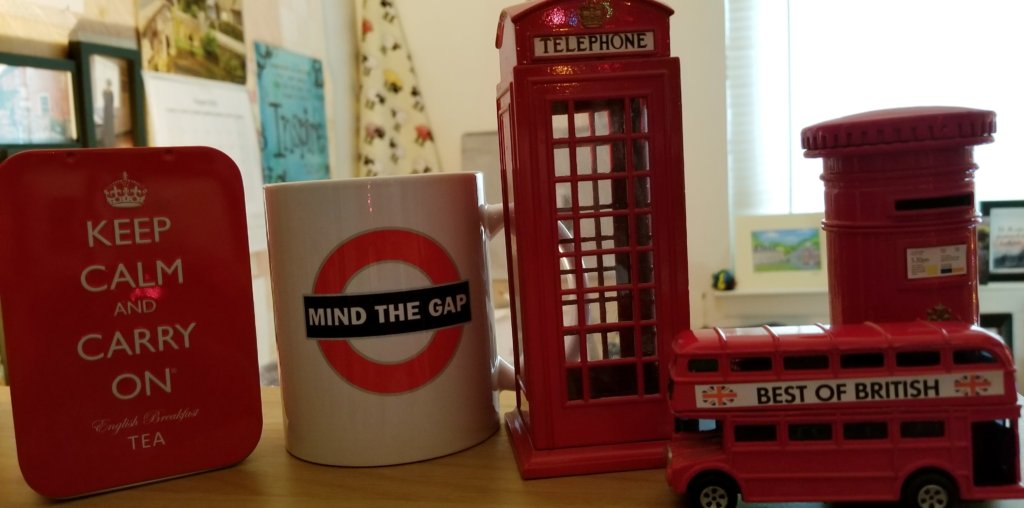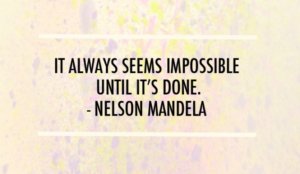
I love the ringing sound of “Mind the Gap!” when British train doors slide open at a station platform.
“Mind the Gap!” is an audible (or visual) warning. It’s issued to rail passengers to take caution while crossing the space between the train door and the station platform.
“Mind the Gap!”
The phrase was first introduced in 1968 on the London Underground. But when I see my “Mind the Gap” mug on my writing desk, it means something different. I look at where I am in my goal (writing, marketing, or a health challenge) and where I want to be (the dreamed-of finished manuscript, increased social marketing numbers, or a healed lower back).
Then I calculate the distance from Point A to Point B. That’s the gap.
Making the Leap
If you fearfully procrastinate stepping off the train (with rolling luggage bumping along behind), you risk getting caught in the closing door or being run over by passengers behind you. Conversely, if you move too fast, without truly calculating the gap, you can guage it wrong and step down into it instead of over it, breaking an ankle. So minding the gap is critical.
It’s critical with your story too. When a writer procrastinates too long on finishing a story, a similar story can be published by a faster writer overtaking us. But moving fast before assessing how much revision your work-in-progess still needs is risky too. It can result in your manuscript disappearing in an editor’s Inbox or sinking out of sight on the date of publication.
Someone to Stand in the Gap
Years ago, when my four children went back to school in the fall, I also felt energized and motivated. I bought new school supplies for my writing office, then took a good (compassionate) look at my current novel. Where was I? Where did I want to be?
If I can help you get off the writing train and land sure-footed on the station platform, I’d be happy to do it. Check out my critiques page for fall openings, plus a “back to school” price cut for September.

 Youth isn’t everything–not in physical endeavors, nor mental ones.
Youth isn’t everything–not in physical endeavors, nor mental ones. 




